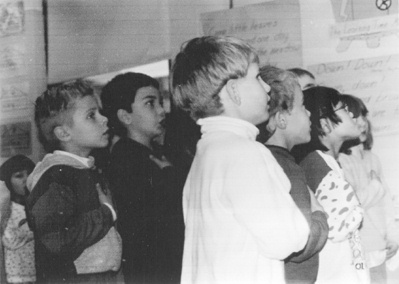All Nonfiction
- Bullying
- Books
- Academic
- Author Interviews
- Celebrity interviews
- College Articles
- College Essays
- Educator of the Year
- Heroes
- Interviews
- Memoir
- Personal Experience
- Sports
- Travel & Culture
All Opinions
- Bullying
- Current Events / Politics
- Discrimination
- Drugs / Alcohol / Smoking
- Entertainment / Celebrities
- Environment
- Love / Relationships
- Movies / Music / TV
- Pop Culture / Trends
- School / College
- Social Issues / Civics
- Spirituality / Religion
- Sports / Hobbies
All Hot Topics
- Bullying
- Community Service
- Environment
- Health
- Letters to the Editor
- Pride & Prejudice
- What Matters
- Back
Summer Guide
- Program Links
- Program Reviews
- Back
College Guide
- College Links
- College Reviews
- College Essays
- College Articles
- Back
The "Everywhere and Nowhere" Lifestyle
Raising me as a third culture kid or TCK is one of the greatest gifts my parents have ever given me. Third culture kids are defined as children raised in a culture other than either of their parents’. My father is German and my mother is American but I was born in Malaysia and moved to Vietnam when I was 5. I believe that TCKs have more of an advantage in life compared to children raised in a homogeneous society.
“[An upbringing with an international experience can have many advantages. Mastering in ]multiple languages, intercultural awareness, and larger worldviews are among the frequently reported ones. [Third Culture kids enter adulthood with skills to handle change and to ]communicate across cultures. [We are usually highly educated mostly studying within the international school system, with a survey showing that TCKs are four times more likely to have bachelor’s degrees compared to non-TCKs. Many Third Culture Kids choose jobs that take them once again overseas, ]jobs such as human service, education, medicine, law, self-employment etc (Mobbs).”
Third Culture Kids have a better understanding of the world. We understand that people are different and we understand the there is more to the world than where we grew up. And as a result of that, we are more tolerant with racial and ethnic divides because most of our lives we have been living with and around people who are racially, religiously, and ethnically different from us (“The Pros and” ).
Adult Third Culture Kids (ATCKs) have been reported to have identity issues not knowing where “home” is because they feel that they don’t belong in their parent's cultures and the culture that they grew up in. ATCKs also always seem to suffer from the idea of being from nowhere and everywhere. Having their own definition of culture and values ( “Discussing the Pros”). Therefore may feel a sense of rootlessness (“The Pros and” ). Being rootless has given some Third Culture Kids a sense of freedom. “The sense of being at home anywhere, yet feeling that home is nowhere at the same time” (Faye).
Being a TCK has shown to not only be good for a child's development but also help in the future. If I had not been raised as a Third Culture Kid I would not have the amazing life that I have now been able to see different people from cultures, races, ethnic groups and religions and learn about how they live their lives and them learn about how I live mine. TCKs create a strong community amongst ourselves. And although I don’t know where “home” might exactly be, I know that I am so grateful for this opportunity.

Similar Articles
JOIN THE DISCUSSION
This article has 0 comments.

I've been a Third Culture Kid for all 14 years of my life. And people sometimes don't understand what the means and think that all TCKs are the same. But we aren't. We all have different experiences and stories. My piece kind of shines a light on the benefits of being a TCK and what its all about.